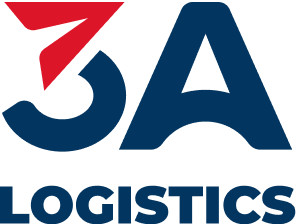In the current global landscape, where environmental sustainability is a critical concern, industries are urged to integrate eco-friendly practices that significantly reduce their environmental footprints. The air cargo sector, a pivotal component of international commerce and logistics, is under scrutiny for its substantial carbon emissions and overall environmental impact. This discussion delves into eco-sustainable strategies within air cargo operations, emphasizing the importance of minimizing ecological damage.
ECO-SUSTAINABLE STRATEGIES IN AIR FREIGHT: AN INTEGRATED APPROACH
Achieving a lesser environmental impact from air cargo operations necessitates a comprehensive strategy. This strategy encompasses a range of measures including enhancing fuel efficiency, adopting alternative energy sources, making operational enhancements, and fostering stakeholder collaboration.

1.Enhancing Fuel Efficiency
Fuel consumption stands as a primary environmental concern in air cargo services. To combat this, several initiatives can be adopted:
- Aerodynamic Improvements: Investment in aircraft featuring advanced aerodynamic designs, like winglets, can lessen air resistance and boost fuel economy.
- Engine Upgrades: Transitioning to modern, fuel-efficient engines can dramatically decrease fuel usage and emissions.
- Route and Operation Optimization: Employing sophisticated technologies for real-time meteorological updates and analytics can streamline flight paths, and takeoff and landing operations, cutting down on fuel expenditure.
2.Exploring Alternative Energy
Beyond improving fuel efficiency, the sector must investigate renewable energy alternatives to further diminish carbon emissions.
- Sustainable Aviation Fuel (SAF): Produced from renewable resources, SAF offers a cleaner substitute for conventional aviation fuels, significantly lowering carbon emissions.
- Electric Propulsion: With ongoing advancements, electrically powered aircraft represent a promising future for emission reduction, although currently in nascent stages.
3.Streamlining Operations
Adopting more efficient operational methodologies can also enhance sustainability in air cargo by reducing unnecessary wastage.
- Cargo Consolidation: By aggregating shipments, the frequency of flights can be reduced, optimizing load efficiency and decreasing emissions per freight unit.
- Optimizing Load Factors: Ensuring aircraft are fully utilized maximizes the efficiency of flights, achievable through coordinated efforts between carriers and freight forwarders.
- Advanced Logistics: Leveraging cutting-edge logistics planning technology can refine routing, reduce return trips without cargo, and elevate overall operational effectiveness.
STRATEGIES FOR ECO-SUSTAINABILITY IN AIR FREIGHT: DIMINISHING ENVIRONMENTAL IMPACT
The environmental footprint of air cargo, characterized by significant carbon emissions and energy use, necessitates the adoption of sustainable practices for a cleaner future.

The air cargo industry can make notable progress in environmental responsibility by:
- R&D Investment: Ongoing innovation in sustainable aviation technologies and practices is crucial for minimizing ecological impacts.
- Collaborative Efforts: Partnerships among airlines, regulatory entities, and eco-conscious organizations are essential for knowledge exchange and collective sustainability initiatives.
- Supportive Regulations: Policies encouraging sustainability, like emissions trading or carbon offsets, can motivate cargo carriers towards greener operations.
- Awareness and Education: Enhancing understanding of air cargo’s environmental impact among professionals, decision-makers, and the public is key to fostering sustainable choices.
- Infrastructure Development: Investing in eco-efficient infrastructure, such as modern airports and cargo facilities, aids in reducing operational emissions.
- Ongoing Enhancement: Sustainability is a continuous journey, requiring regular assessment and refinement of practices to lead in environmental stewardship.
CONCLUSION
Integrating sustainable practices in air cargo is imperative for mitigating its environmental impact. By focusing on fuel efficiency, alternative energy exploration, operational enhancements, and collaborative efforts, the air cargo sector can significantly lower its carbon footprint, steering towards a more eco-sustainable future. Continuous innovation, awareness, and collective action are vital to achieving the goal of a sustainable air cargo industry, offering long-term benefits for both the sector and the planet.
—- –
With the motto “Global Standard – Local Insight”, 3A Logistics is continuously innovating to become a professional Vietnamese logistics brand, standardizing according to international standards and possessing deep insights into the Vietnamese logistics market.
The comprehensive services provided by 3A Logistics include:
- Sea Freight / Air Freight / Road Freight Transportation
- Warehousing & Distribution
- Customs Clearance Services
- Supply Chain Optimization
- Cross-border Transportation
- Additional Services: Cargo Insurance, Customs Procedures,…








